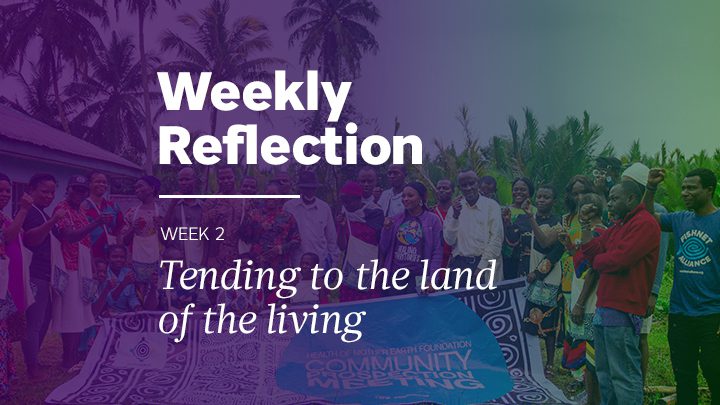

Readings
Genesis 22:1-2, 9a, 10-13, 15-18
Psalm 116: 10, 15, 16-17, 18-19
Romans 8:31b-34
Mark 9:2-10
I walk before the Lord in the land of the living.
― Psalm 116:9
Tending to the land of the living
By Randy Haluza-DeLay, Animator for Central Ontario
There are two themes running through the readings for today. The first comes from the responsorial psalm, “I walk before the Lord in the land of the living.”
What makes a land appropriate for the living? That is, what makes it a livable land rather than, say, a valley of the shadow of death as in Psalm 23?
Is it still the land of the living when mining wastes contaminate the land? When farmers have trouble growing the food that would feed people and secure their own livelihood? These are some of the questions that the Home of Mother Earth Foundation (HOMEF), a Development and Peace ― Caritas Canada partner is addressing in Nigeria, to the end of safeguarding the land for the living.
The second theme is the notion of sacrifice, and how it changes across the readings. In the Genesis passage, Abraham believes he has been ordered to sacrifice his son. But God stopped the action of sacrifice. The psalm mentions the sacrifice of thanksgiving. The passage from St. Paul’s letter to the Romans harks back to Abraham, pointing out that God did not spare His own Son. This means that Jesus is the only sacrifice needed, and that sacrifice is not the end of the story. After all, Jesus was raised from the dead (Romans 8:34).
But what if the land and the people who try to walk on it with the Lord are themselves sacrificed on the altar of profit? HOMEF knows that the land and the people living there should not be sacrificed. Instead, their programs try to make the land a fruitful one where people can live well as God intended, and where “creation itself will be set free from its bondage to decay and will obtain the freedom of the glory of the children of God” (Romans 8:21).
This is why Development and Peace ― Caritas Canada works with HOMEF and many other such partners around the world. They are fighting to help the land and the people flourish. Flourishing means to be able to live the divinely desired abundantly (John 10:10). Flourishing means that people’s bodily health is fully nourished (food security, clean water) and supported (health care); their minds reach full development (education); their spirits are able to blossom (religious liberty); their families prosper (economic well-being); and everyone thrives and can pursue the full use of their God-given gifts in an environment characterized by ecological stability, citizen participation and fair electoral and bureaucratic systems.
However, there are forces aligned against people being able to be in a land full of a good life. HOMEF has determined that in the Nigerian context, opposing pollution from oil extraction, protecting the food system, and advocating for the rights of farmers are the primary ways to ensure that people can “walk before the Lord” in a “land of the living,” as the Lord intended.
And that returns us to sacrifice. Lent lead us to Easter, when Jesus was sacrificed on the cross, but then raised from the dead (Romans 8:34). Lent reminds us also that to “walk before the Lord” requires some things of us. Knowing the needs of global partners reminds us that we can help the sisters and brothers they serve to live in a flourishing land, a “land of the living.”

